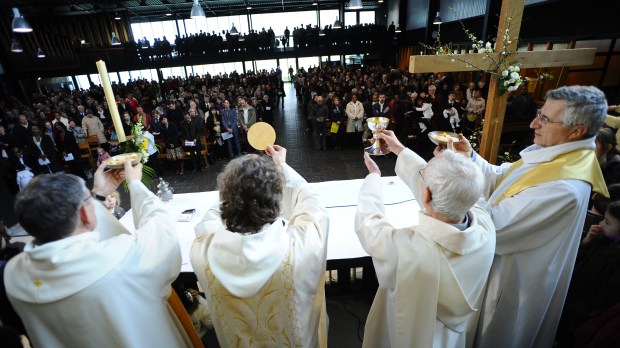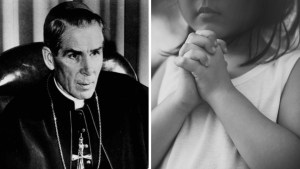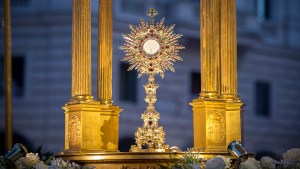One of the minimum requirements in the Church is called by some the Easter duty, requiring Catholics to receive holy communion at least once during the Easter Season.
This requirement is spelled out in the Code of Canon Law.
Can. 920 §1. After being initiated into the Most Holy Eucharist, each of the faithful is obliged to receive holy communion at least once a year.
§2. This precept must be fulfilled during the Easter season unless it is fulfilled for a just cause at another time during the year.
The Catechism of the Catholic Church adds that this Easter duty for Catholics should be preceded by confession.
The Church obliges the faithful to take part in the Divine Liturgy on Sundays and feast days and, prepared by the sacrament of Reconciliation, to receive the Eucharist at least once a year, if possible during the Easter season. But the Church strongly encourages the faithful to receive the holy Eucharist on Sundays and feast days, or more often still, even daily.
CCC 1389
This requirement is meant to serve as a bare minimum for Catholics, as they are encouraged to frequent both the sacraments of holy communion and reconciliation throughout the year.
The Easter duty also emphasizes Jesus’ resurrection and its connection to the gift of the Eucharist that Jesus gave the Church. Easter is the time of the year when the Church more intimately reflects on these central beliefs of the Christian faith. This is one of the many reasons why the Church urges her faithful to receive the sacraments during this holy season.
Easter is the “feast of all feasts,” making it an appropriate time to fulfill the Easter duty, uniting ourselves with Jesus in holy communion.



